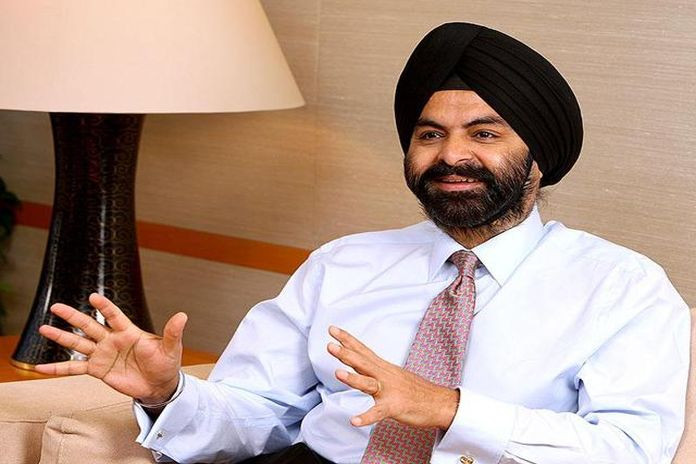By Ajay Banga
Extreme poverty leaves people in hunger, without housing or medical care, robbing them of dignity. Deprivation of opportunity has no place in a world with the resources and technology that so many enjoy in abundance. Since its inception nearly eight decades ago, the World Bank has played a transformational role in lifting living standards in every corner of the globe. But as we confront rising poverty and crisis after crisis – from pandemic to conflict to the ravages of a changing climate – the need for a high-performing bank is more urgent than ever.
The institution must now evolve to tackle challenges that its founders couldn’t imagine – in the keen understanding of how these priorities intersect. Climate change, pandemics and forced migration are eroding progress for the very people whom development efforts benefit. The tasks ahead of us are intertwined. Their scale means that no institution can do it alone.
We should seize this moment to convert these challenges into greater opportunities for the most vulnerable. Meeting ambitious climate goals doesn’t mean sacrificing development or inclusive economic growth. New technologies can help bypass the emissions-heavy pathways of the past – something I recently saw in Kenya, which generates the overwhelming majority of its energy from renewable sources.
Public-private partnerships and investments have enabled renewable energy to become cost-efficient. We now need to invest in developing infrastructure, agricultural productivity, food security, and expanding shipping and trucking in a resilient and sustainable manner. We must particularly focus on unlocking the potential of young people, especially in the global south. They deserve economic opportunities and the resulting optimism to better their lives and their countries.
The World Bank can, and must, play a critical role as a force multiplier in coordinating global action. Its talented staff do vital, and often unsung, work every day. The scale of investments required for fighting inequality and climate change, and boosting productivity and growth, is in the many trillions of dollars each year. The bank should build on the recommendations of the G20 Capital Adequacy Framework to stretch every dollar it has. But working alone, it will fall short of what’s required. All multilateral development banks must work in tandem to maximise impact.
Still more will be required. The private sector, with its capital and innovation, will be key, as will the partnerships that need strengthening between governments, civil society and private enterprise. The bank can deploy technical knowledge, policy support and financing to serve as a catalyst for mobilising the private sector to help address these challenges.
Managing this will require skills that I believe my background has given me. In the private sector, I’ve led organisations spanning the globe with tens of thousands of employees and close engagement with the public sector. I’ve delivered on ambitious goals that required me to transform teams to meet the demands of a constantly-changing world. I’ve brought together government and business to secure over $4B in commitments to invest in economic opportunities in Central America and advised an investment fund that channelled over $800M into emerging green technologies, including in developing countries. I believe that is exactly what the World Bank needs at this critical moment in time.
Effectively leading the bank also requires a deep understanding of the challenges that countries and people face. Right now, I’m on a tour to meet with government officials, development experts, civil society organisations and entrepreneurs to hear their vision for the institution’s future. In Ivory Coast and Kenya, I had the privilege of hearing from those who have benefited from the World Bank’s work. Residents of Abidjan told me their lives have been transformed by an investment in expanding access to electricity. Young entrepreneurs in Nairobi showed me how they’re benefiting from expertise and financing to launch cleantech start-ups.
The opportunity to lead the World Bank would be the culmination of my life’s work. I grew up in India in a middle-class family. I received a good education and learnt the value of hard work. But too many people don’t get the opportunities I did. All of the world’s citizens deserve a chance to better their lives. We must offer people – and indeed countries – the opportunities they need to succeed, so that everyone can feel the hand of good fortune pushing them forward.
Source: US Department of the Treasury






